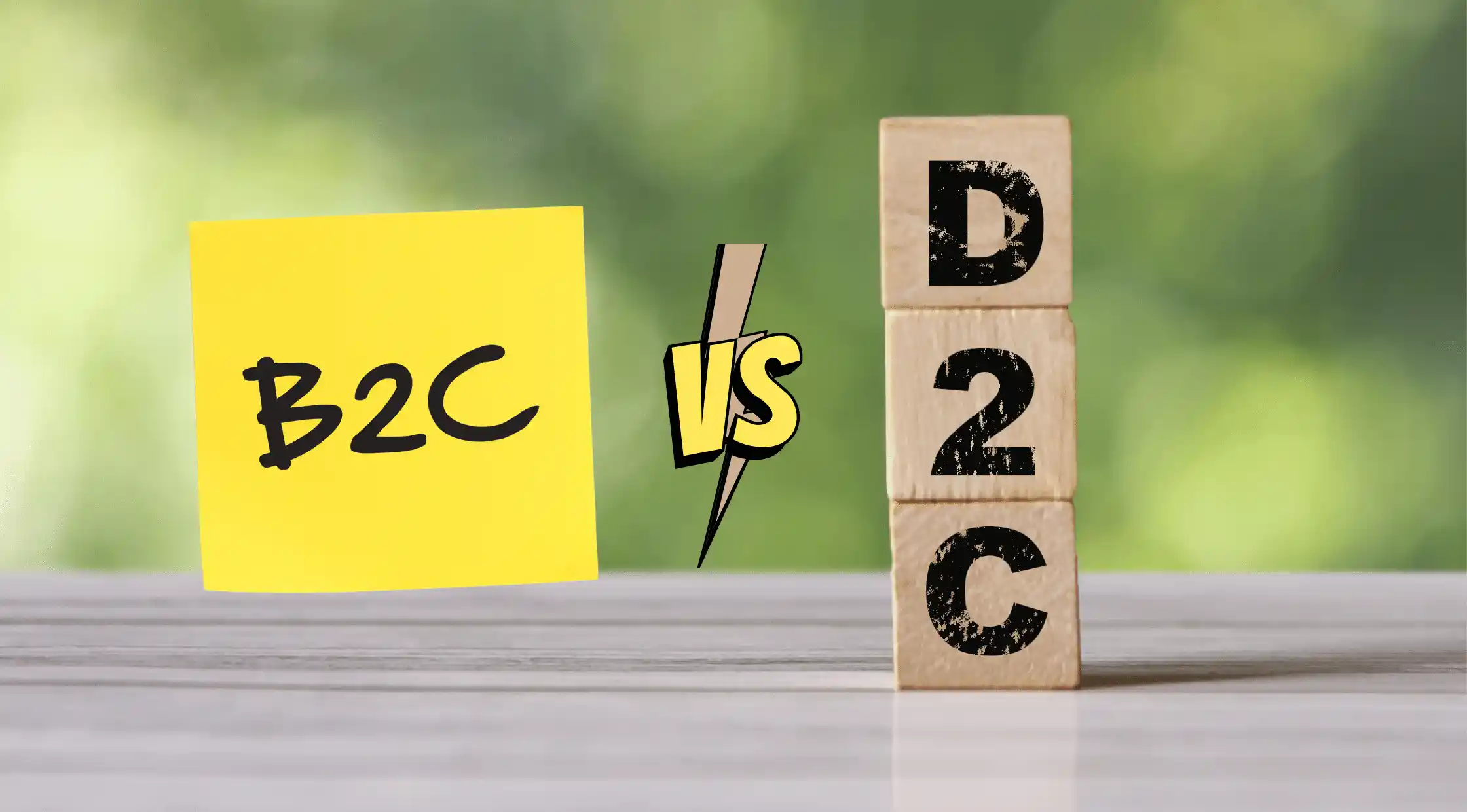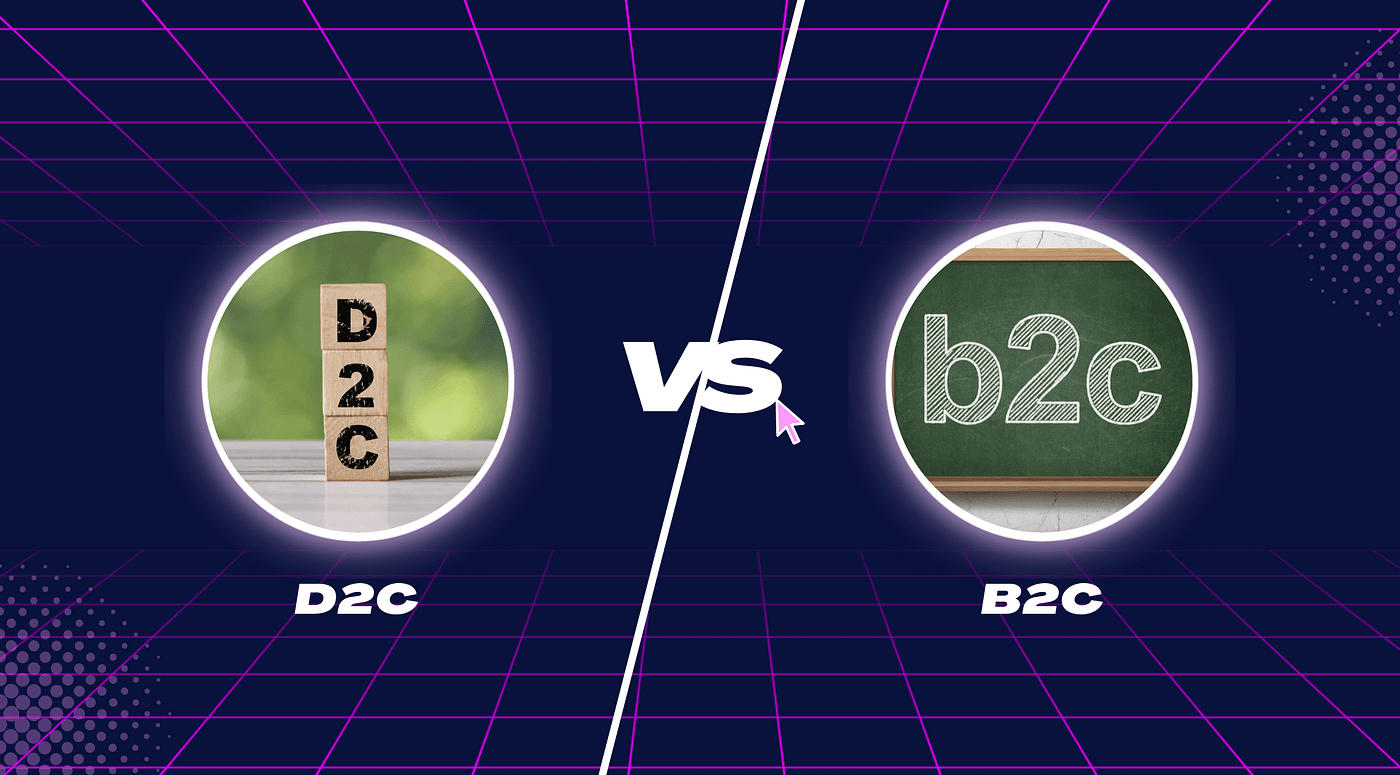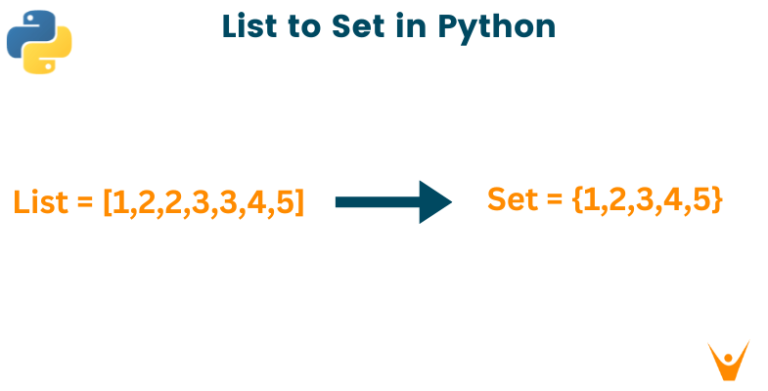B2C vs D2C: Decoding the Landscape of E-commerce
The e-commerce landscape is a dynamic battleground, constantly evolving with new technologies and consumer behaviors. In recent years, the emergence of the D2C (direct-to-consumer) model has shaken things up, challenging the established dominance of B2C (business-to-consumer) giants. But what exactly are these models, and which one is right for your business? This comprehensive guide will equip you with the knowledge to navigate the B2C vs D2C landscape and chart the best course for your e-commerce success.
Understanding the B2C Model: A Familiar Powerhouse
The B2C model is the traditional approach where businesses sell products or services directly to consumers through various channels. This can include online marketplaces like Amazon or eBay, brick-and-mortar retail stores, or even telemarketing. The B2C model offers several advantages:
- Established Infrastructure and Distribution Networks: B2C businesses leverage existing infrastructure and partnerships with established retailers, allowing for wider customer reach and faster product distribution. Imagine your products on shelves across the country without needing to manage your own network of stores.
- Economies of Scale: Larger B2C businesses can negotiate better deals with suppliers, potentially leading to lower prices for consumers. This allows them to compete effectively on price in a crowded marketplace.
- Brand Exposure: Partnering with reputable retailers can increase brand awareness and establish trust with consumers. Seeing your product alongside established brands can give you a legitimacy boost.
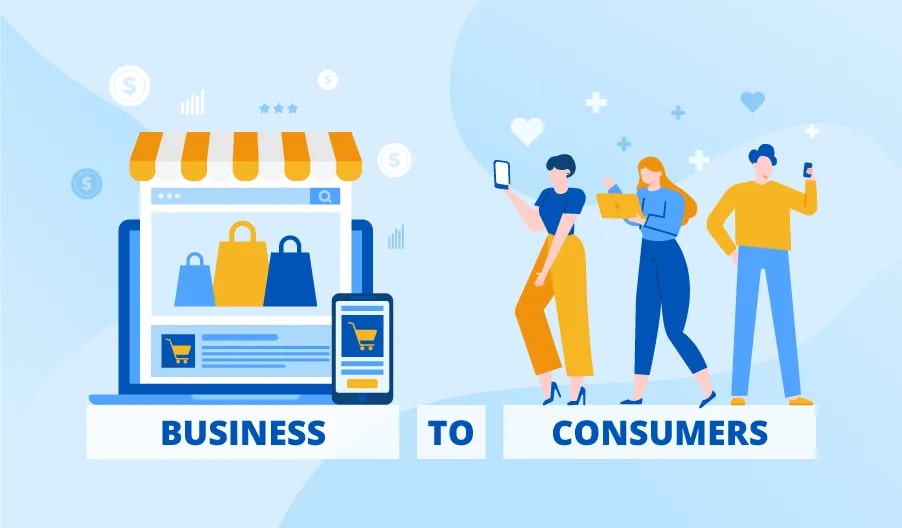
However, the B2C model also has limitations:
- Limited Brand Control: B2C businesses may have less control over brand messaging and customer experience, as retailers can influence how products are presented. You might not have complete control over how your product is displayed or marketed.
- Reliance on Retailers: Profit margins can be lower due to markups by retailers, and B2C businesses have less control over pricing strategies. Retailers take a cut of the profits, potentially impacting your bottom line.
- Competition: Saturated markets within the B2C space can lead to fierce competition for customer attention. Standing out on crowded shelves or online marketplaces can be a challenge.
The D2C Model: A Disruptive Challenger
The D2C model flips the script, allowing businesses to bypass traditional intermediaries and sell directly to consumers through their own online stores or platforms. This approach offers several benefits:
- Stronger Brand Control: D2C businesses have complete control over brand messaging, customer experience, and pricing strategies. You can craft a unique brand identity and control how customers interact with your products.
- Higher Profit Margins: Eliminating middlemen allows D2C businesses to retain a larger share of the profits. You get to keep more of the money you make from each sale.
- Valuable Customer Data: Direct interactions with customers enable D2C businesses to gather valuable data for personalized marketing and product development. You can learn more about your customers’ preferences and tailor your offerings accordingly.
- Increased Agility: D2C businesses can adapt and respond to market trends more quickly due to a more streamlined structure. Without the need to navigate complex partnerships with retailers, you can react faster to changing market conditions.
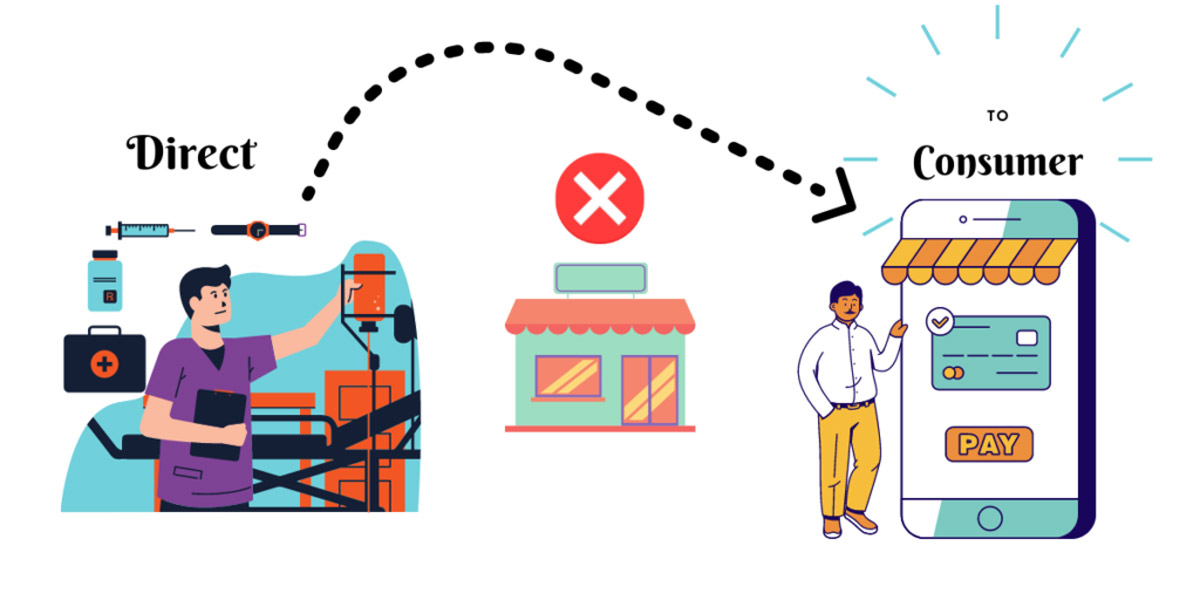
However, the D2C model also presents challenges:
- Building Brand Awareness: Without established retail partnerships, D2C businesses need to invest heavily in building brand awareness and customer trust from scratch. You’ll need to create a strong online presence and marketing strategy to get your name out there.
- Logistics and Fulfillment: Managing inventory, warehousing, and product fulfillment can be complex tasks for D2C businesses. You’ll need to establish a system for storing, packaging, and shipping your products to customers.
- Marketing Costs: Acquiring and retaining customers can be expensive for D2C businesses, as they compete for attention in a crowded online space. Effective marketing strategies are crucial to attract and retain customers in a competitive online environment.
B2C vs D2C: A Side-by-Side Comparison
While both B2C (business-to-consumer) and D2C (direct-to-consumer) models aim to sell directly to consumers, their approaches differ significantly. B2C businesses typically target a broad consumer base through established channels like online marketplaces (think Amazon or eBay), retail stores, or even telemarketing. This allows for wider reach but can limit brand control and potentially reduce profit margins due to retailer markups.
On the other hand, D2C businesses focus on reaching specific or niche audiences through their own online stores and social media platforms. This approach offers complete control over brand messaging and customer experience, potentially leading to higher profit margins since there are no middlemen involved. However, D2C businesses need to invest heavily in building brand awareness and managing their own logistics and fulfillment operations, which includes tasks like inventory management, warehousing, and product shipment.
Choosing the Right Model for Your Business
The ideal e-commerce model depends on your unique business goals and circumstances. Here are some key questions to consider:
- What type of product are you selling? Luxury or complex products might benefit from the brand control offered by D2C, while simpler products might thrive in a B2C marketplace.
- Who is your target audience? Understanding your ideal customer’s shopping habits will help you determine the best channels to reach them.
- What is your brand identity? Consider how each model aligns with your brand image and desired level of customer interaction.
- What is your budget? B2C might be more cost-effective initially, while D2C requires investment in brand building and marketing.
- What are your long-term goals? Think about future scalability and the potential for expanding your reach.
Case Studies: B2C and D2C Success Stories
Seeing real-world examples can further solidify your understanding of each model. Let’s explore some successful companies operating under both B2C and D2C models:
- B2C Success Story: Target leverages a strong physical store presence alongside a user-friendly online marketplace to reach a broad audience. This B2C approach allows them to offer competitive pricing and brand recognition through established partnerships.
- D2C Success Story: Dollar Shave Club disrupted the razor industry with a D2C model, building brand awareness through viral marketing and selling directly to consumers through their website. This approach gave them control over brand messaging and customer experience.
The Future of Ecommerce: Collaboration and Innovation
The e-commerce landscape is constantly evolving. The lines between B2C and D2C might blur in the future, with businesses adopting hybrid models that leverage the strengths of both approaches. For instance, a B2C brand might establish its own online store alongside its retail partnerships (omnichannel strategy).
The key to success lies in continuous adaptation and innovation. Regardless of the model you choose, prioritize understanding your target audience, building a strong brand identity, and leveraging effective marketing strategies.
Conclusion
The B2C and D2C models offer distinct paths to e-commerce success. By understanding the strengths and limitations of each approach, you can make an informed decision that aligns with your business goals. Remember, there’s no one-size-fits-all solution. Carefully consider your resources, target market, and long-term vision to chart the best course for your e-commerce journey.
OnextDigital can be your trusted partner in navigating the exciting world of e-commerce, regardless of the model you choose. Our comprehensive suite of services empowers you to: Web Development Service, Mobile App Development, UX/UI Design Service, White label software service, and CRM & auto marketing implement service. Contact us today for a free consultation and let’s discuss how we can tailor our services to propel your e-commerce journey!

